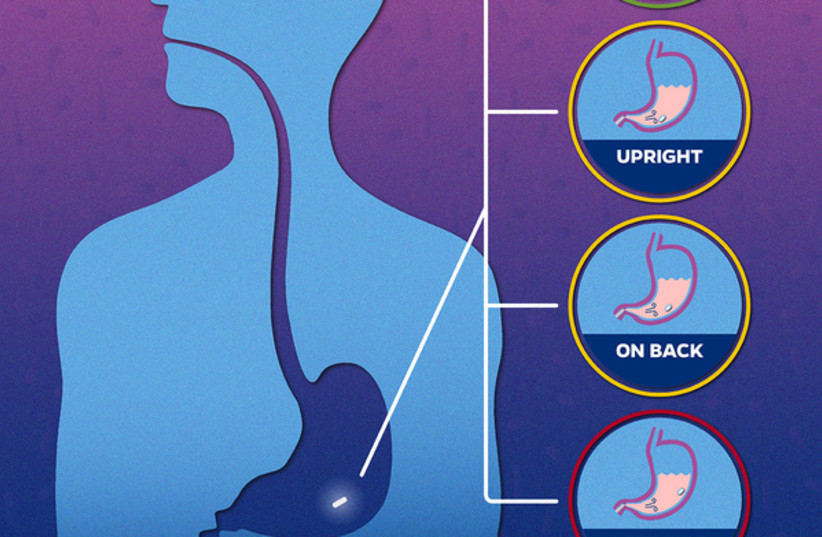What’s your posture when taking a pill? Do you sit upright or lie down on one side or the other?
It makes a difference, according to an engineer and expert in fluid dynamics at Johns Hopkins University. Rajat Mittal and his team in Baltimore, Maryland, built a model called StomachSim to realistically simulate the mechanics of drug dissolution on the human stomach.
“We were very surprised that posture had such an immense effect on the dissolution rate of a pill”
Rajat Mittal
They found that your posture can make a big difference – as much as an hour longer – in how fast your body absorbs the medicine.
“We were very surprised that posture had such an immense effect on the dissolution rate of a pill,” said senior research author Mittal. “I never thought about whether I was doing it right or wrong, but now I’ll definitely think about it every time I take a pill.”

The research has just been published in the journal Physics of Fluids under the title “Computational modeling of drug dissolution in the human stomach: Effects of posture and gastroparesis on drug bioavailability.”
“I never thought about whether I was doing it right or wrong, but now I’ll definitely think about it every time I take a pill”
Rajat Mittal
Oral administration of pills is a safe, economical and easy way to administer drugs to patients, and is known to result in a high degree of patient compliance.
How to take a pill
In recent years, models have been created to authentically represent the workings of several major organs, especially the heart. The model developed by the Johns Hopkins team blends physics with biomechanics and fluid mechanics. StomachSim mimics what happens inside a stomach as it digests food, or in this case, medicine.
Most pills do not start working until the stomach ejects their contents into the intestine. The closer a pill lands to the lowest part of the stomach – the antrum – the faster it starts to dissolve and empty its contents through the pylorus into the duodenum, the top of the small intestine. If you’re aiming a pill at this part of the stomach, posture is critical in both gravity and the natural asymmetry of the stomach.
The team tested four postures. Taking pills while lying on the right side was by far the best, sending pills into the deepest part of the stomach to achieve a dissolution rate 2.3 times faster than even an upright posture.
Lying on the left side was the worst. The team was very surprised to find that if a pill takes 10 minutes to dissolve while lying on the right side, it could take 23 minutes to dissolve in an upright posture and more than 100 minutes when laying on the left side.
Standing upright was a decent second choice, essentially tied in effectiveness with lying flat.
“For elderly, sedentary or bedridden people, whether they’re turning to left or to the right can have a huge impact”
Rajat Mittal
“For elderly, sedentary or bedridden people, whether they’re turning to the left or to the right can have a huge impact,” Mittal said. “Posture itself has such a huge impact, it’s equivalent to somebody’s stomach having a very significant dysfunction as far as pill dissolution is concerned.”
The team also considered how stomachs that aren’t functioning at full strength due to gastroparesis. That chronic condition, in which the stomach cannot empty in the normal way and food passes through it slower than usual – caused by diseases such as diabetes and Parkinson’s disease – affects the dissolving of pills. Even a small change in the conditions of the stomach can lead to significant differences in the outcome of an oral drug, said lead author Jae Ho Lee, a former postdoctoral researcher at Johns Hopkins.
Future work will try to predict how the changes in the biomechanics of the stomach affect how the body absorbs drugs. It will also look at how food is processed in the stomach and the effect of posture and gastroparesis on digestion.
